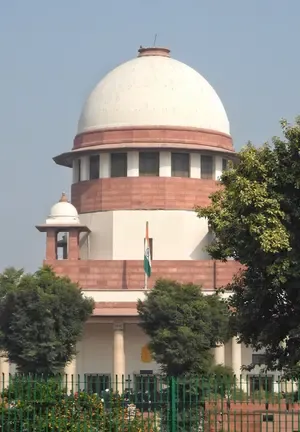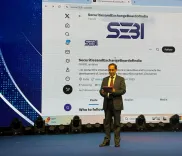Supreme Court Rejects Petition Urging Oil Companies to Allocate CSR Funds for Public Transport

New Delhi, Dec 16 (NationPress) The Supreme Court has dismissed a Public Interest Litigation (PIL) that sought to direct both public and private sector oil companies to allocate a fraction of their Corporate Social Responsibility (CSR) funds towards the enhancement of public transport systems in Delhi and other heavily polluted cities.
Nevertheless, a Bench led by Justice B.V. Nagarathna has permitted the PIL petitioner to submit an appropriate representation or attempt to bring the matter to the attention of relevant authorities, including the Environment Pollution (Prevention and Control) Authority (EPCA).
“It is unnecessary to state that if such a representation is submitted by the petitioner, it shall be addressed in accordance with the law,” the Bench, which also included Justice N. Kotiswar Singh, ordered.
The PIL, initiated by an NGO named Tsunami On Roads, argued that to mitigate health risks associated with severe air pollution in Delhi and other highly polluted cities, oil companies should be mandated to support public transport services as compensation for the environmental harm caused by the combustion of fossil fuels.
Additionally, it requested the EPCA to oversee and establish guidelines for the effective use of CSR funds to enhance the public transport systems in selected cities facing significant pollution challenges.
The petition also called on the EPCA to allocate a portion of the CESS held by the CPCB [gathered under environmental protection charges (EPC) and environmental compensation (EC)] for the improvement of public transport, along with other environmental protection efforts.
To combat air pollution, the PIL emphasized that it is a globally recognized fact that a robust public transport system is the most efficient and economical solution for diminishing air pollution and mitigating traffic congestion.
“Even in the most developed nations, the focus is shifting from the construction of additional roads and flyovers to alternative transportation plans such as mass transit. In a developing nation like India, it may not always be feasible for the government to provide sufficient subsidies or financial support to the transport sector; hence, public transport could benefit from CSR contributions,” it stated.









